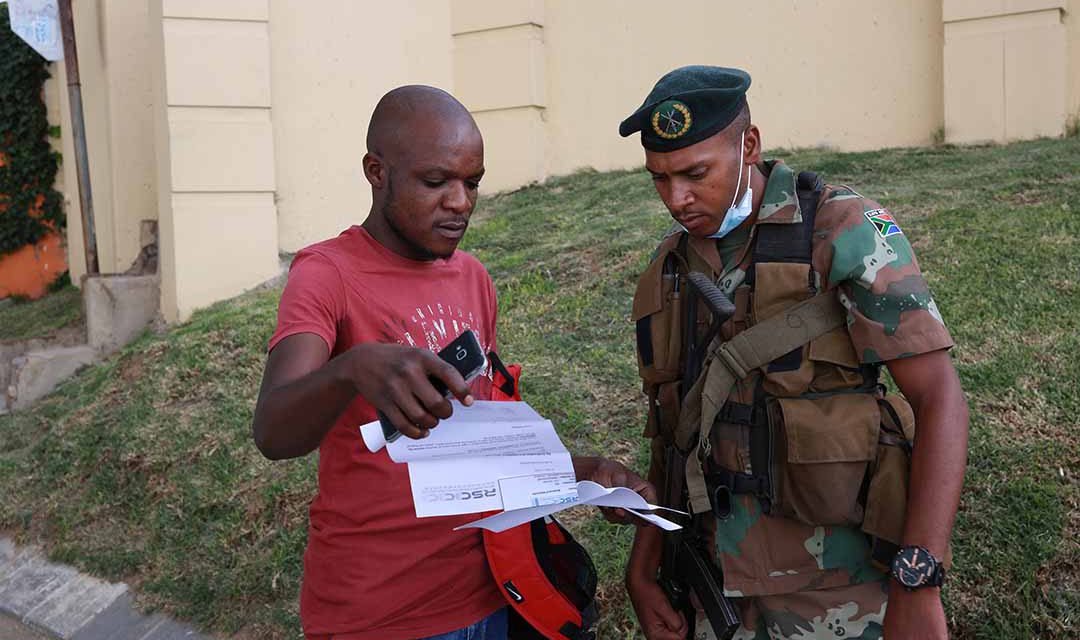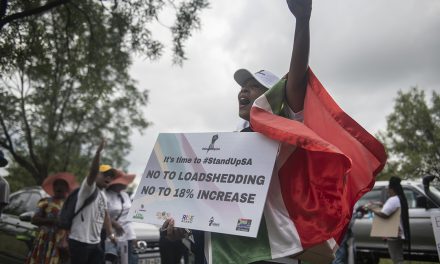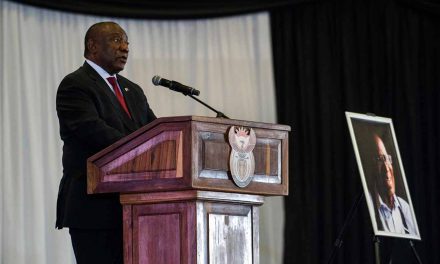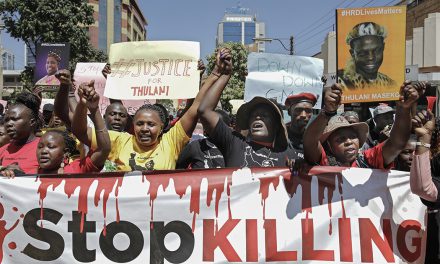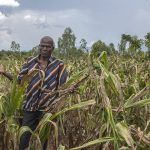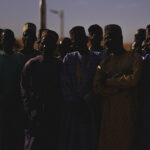A GGA RESPONSE
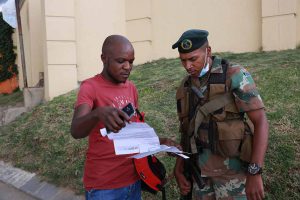
March 27 2020: A soldier checks the permit of a man making his way to work in Alexandra, Johannesburg, where military personnel are enforcing the lockdown announced by the president. PHOTO: THAPELO MOREBUDI/SUNDAY TIMES
MAY 2020
PATROLLING DURING A PANDEMIC
Recommendations to the South African Police Service and South African National Defence Force during the COVID-19 deployment
On 5 March, 2020, the Minister of Health, Zweli Mkhize, announced the first confirmed case of coronavirus in South Africa. On 15 March, President Cyril Ramaphosa declared a National State of Disaster and announced a series of immediate measures to mitigate the further spread of the virus, including strict travel restrictions and the closure of nonessential industries, schools and universities. Just over a week later, on 23 March, the president announced that the National Coronavirus Command Council (NCCC) had decided on a national 21-day lockdown, which was enacted in terms of the Disaster Management Act. The lockdown was subsequently extended to 30 April. To assist South African Police Service (SAPS) members with implementation of lockdown restrictions, maintain law and order, support other state departments, and control the border in line with the Disaster Management Amendment Act (2015), 2,820 members of the South African National Defence Force (SANDF) were deployed across nine provinces.
On 21 April, citing the continued spread of the COVID-19 virus, President Ramaphosa announced the deployment of an additional 73,180 members of the SANDF, consisting of the Regular Force, Reserve Force, and Auxiliary Force. The revised expenditure incurred for the employment of SANDF members was set at R4,590,393,00.1 For many disadvantaged communities, law enforcement officers are often their first point of contact with the state and therefore they can play an outsized role in determining citizen trust in government. In the current South African context, the conduct of both the SAPS and SANDF will go a long way in determining citizens’ cooperation and compliance with government regulations pertaining to COVID-19. Maintaining law and order during a pandemic is also vital to ensuring public health policies can be effectively implemented to curb the spread of the virus. In recent weeks, there have been concerning reports and videos circulated relating to a number of deaths, harassment and alleged human rights violations by the security forces, especially in the townships.
Encouragingly, Minister of Defence and Military Veterans Nosiviwe Mapisa-Nqakula has come out strongly to caution members of the SANDF against their heavy-handedness during the lockdown, going so far as to say that they should refrain from using any kind of force – even if they are provoked. Similarly, President Ramaphosa, in a recent public address stated that: “This is not a moment for skop (kick) and donner (beat). This is a moment to be supportive to our people. When they see you patrol with your guns, they will be fearful but make sure that when they see you they see [the] kindness of the state of South Africa. They should even get to a point where they may want to give you roses” (Madisa, 2020). Drawing on GGA’s research and programming experience with social cohesion initiatives, and in support of the minister of defence and the president’s emphasis on building community trust and collaboration to best implement COVID-19 related restrictions and measures, this brief aims to provide policy recommendations from a good governance perspective demonstrating how the SAPS and SANDF could be better or best deployed on such a mercy mission in grassroots communities.
These recommendations are in line with the United Nation’s recent emphasis for the need to centre human rights in state responses to COVID-19 to achieve better outcomes in beating the pandemic, ensuring healthcare for everyone, and preserving human dignity (United Nations, 2020). Additionally, in line with the president’s call for an extended period of deployment, looking forward, we have identified potential areas of concern, which may lead to political instability exacerbated by the COVID-19 crisis. These are issues policymakers should be made aware of when formulating future strategies to address the consequences of the pandemic. The COVID-19 pandemic requires South Africans to work collectively to address a common enemy, which has a negative impact on the safety and wellbeing of all citizens. The crisis also lays bare some of the glaring social and economic inequalities often overlooked in “peace times”. This should, therefore, also be seen as an opportunity to consider community resilience and forge new relationships across race, class, and gender to bring about and promote a more equitable and just society. Read more here: Patrolling During A Pandemic Doc

